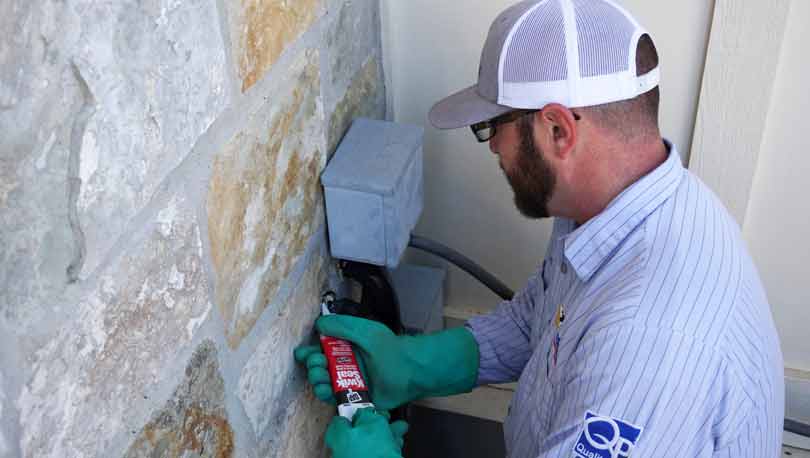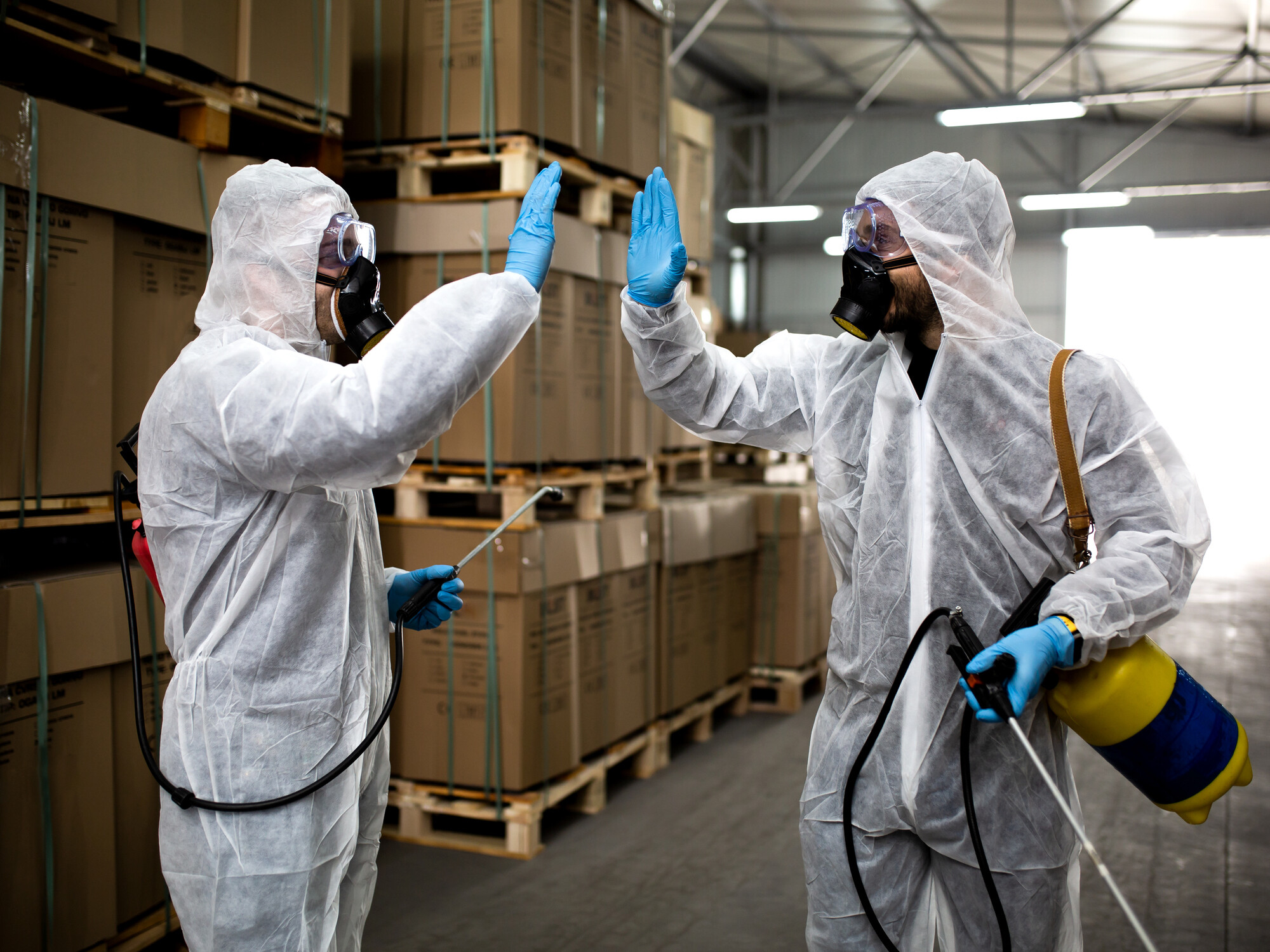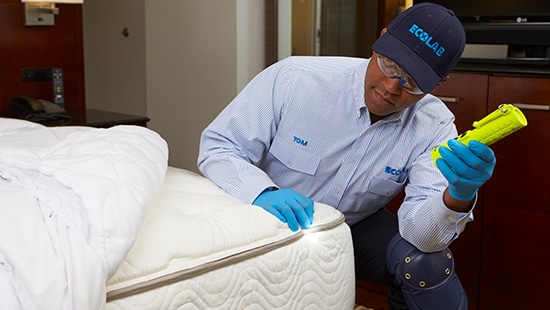Uncovering the Various Kinds of Pest Control Techniques and Their Applications
Parasite control is an essential element of keeping a healthy and secure atmosphere, whether it be in domestic, business, or agricultural setups. From chemical approaches that target details insects to biological techniques that harness natural predators, the realm of insect control is diverse and huge.
Chemical Pest Control Techniques
Chemical insect control techniques are extensively utilized in agriculture and parasite management to efficiently get rid of or regulate pest problems. These approaches involve making use of chemical compounds, such as chemicals, herbicides, and pesticides, to minimize or get rid of insect populations that pose a risk to plants, animals, or human wellness. Pesticides, as an example, target specific pests like weeds, pests, or rodents, disrupting their life process or creating direct damage upon call. Herbicides are particularly made to manage undesirable plant life that competes with plants for nutrients and sources. Insecticides, on the various other hand, are made use of to combat insect pests that can harm plants and transfer diseases.
While chemical parasite control techniques can be extremely reliable in handling bug populaces, they also elevate problems concerning possible environmental and health and wellness threats. It is crucial to adhere to safety guidelines, use incorporated pest monitoring strategies, and consider different methods to decrease the adverse effects of chemical bug control techniques.
Biological Pest Control Methods
 Biological pest control approaches utilize living microorganisms to reduce and take care of parasite populations in a sustainable and eco-friendly manner. This technique involves introducing natural killers, parasites, or virus to manage parasites without the demand for synthetic chemicals. One typical technique is the launch of ladybugs to battle aphids in gardens, as ladybugs are natural predators of these destructive parasites. Another instance is making use of Bacillus thuringiensis (Bt), a bacterium that creates toxic substances lethal to specific insect larvae, to control insects and caterpillars.
Biological pest control approaches utilize living microorganisms to reduce and take care of parasite populations in a sustainable and eco-friendly manner. This technique involves introducing natural killers, parasites, or virus to manage parasites without the demand for synthetic chemicals. One typical technique is the launch of ladybugs to battle aphids in gardens, as ladybugs are natural predators of these destructive parasites. Another instance is making use of Bacillus thuringiensis (Bt), a bacterium that creates toxic substances lethal to specific insect larvae, to control insects and caterpillars. 
Organic insect control techniques supply several advantages over chemical methods. They are generally safer for the setting, as they do not leave damaging deposits or add to contamination. Furthermore, these approaches are typically much more targeted, influencing only the bug species without harming other microorganisms or useful insects. In addition, biological control can be a lasting remedy, as the presented microorganisms can establish lasting populaces and supply continuous pest management. In general, biological parasite control techniques present a reliable and natural alternative to traditional chemical therapies, advertising a balanced ecological community and much healthier environments.
Physical Pest Control Approaches
Utilizing physical approaches to manage insects involves the usage of mechanical or non-chemical ways to take care of and reduce insect infestations properly. One common physical bug control approach is the installation of screens, nets, or fences to obstruct pests from going into certain locations.
Another physical technique is using traps, such as breeze catches for rats or scent catches for bugs. These catches aim to capture insects without positioning any risk to people or the atmosphere. In addition, physical control methods can include strategies like handpicking bugs off plants, making use of vacuum cleaner tools to remove pests, or using heat therapies to get rid of bed pests and other bugs in plagued areas.
Integrated Pest Management Strategies
Executing an all natural strategy to pest monitoring, Integrated Bug Administration (IPM) strategies intend that site to integrate numerous reliable methods to prevent and regulate pest problems while reducing ecological effect and making certain lasting pest control practices. IPM includes the combination of numerous control methods such as biological control, social techniques, mechanical control, and the cautious use of chemicals.

Additionally, IPM stresses the importance of tracking and examining pest populaces to establish the most proper control strategies. By executing IPM methods, parasite control initiatives become much more targeted and effective, lowering the threats connected with excessive pesticide usage and advertising long-lasting parasite monitoring solutions.
Natural and Organic Pest Control Options

One prominent organic insect control approach is neem oil, originated from the seeds of the neem tree, which works as a repellent and disrupts the growth and advancement of pests. Diatomaceous earth, a natural silica-based powder, is one more reliable organic insect control choice that works by drying out pests upon contact. By integrating organic and natural bug control alternatives into insect monitoring strategies, individuals can properly manage parasites while minimizing damage to the setting and advertising sustainable methods.
Final Thought
To conclude, different bug control strategies such as chemical, organic, physical, incorporated parasite management, and natural options are offered click site for successfully taking care of parasite problems. Each approach has its very own benefits and applications relying on the sort of parasite and the environment. By recognizing the various kinds of pest control techniques and their applications, individuals can make informed decisions on one of the most appropriate approach to regulate bugs and secure their building.
Chemical parasite control strategies are extensively utilized in agriculture and bug monitoring to properly eliminate or regulate pest infestations - Orem Pest Control. All-natural bug control methods include making use of biological control representatives, such as killers or parasites, to take care of parasite populaces. By incorporating natural and natural pest control options into pest management visit this site methods, people can efficiently control parasites while lessening harm to the environment and promoting sustainable methods
In verdict, numerous insect control strategies such as chemical, biological, physical, integrated pest administration, and natural choices are readily available for successfully taking care of parasite invasions. By understanding the various types of bug control techniques and their applications, individuals can make educated decisions on the most suitable approach to manage parasites and protect their home.